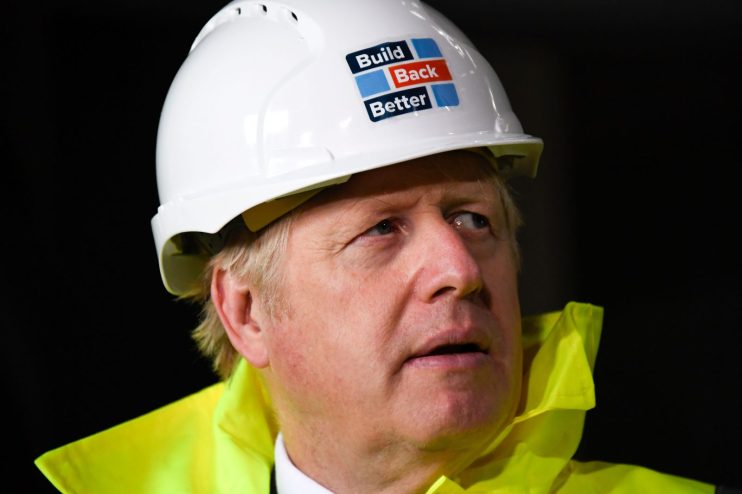Boris Johnson to pump billions into climate change plan and confirms diesel vehicle ban from 2030

Boris Johnson has tonight unveiled his 10 point plan for the UK’s “green industrial revolution”, which he said would create 250,000 new jobs.
The much-anticipated climate change plan involves new commitments in rolling out electric vehicles, nuclear energy, and hydrogen power.
As previously reported, the ban on the sale of new petrol and diesel vehicles will be brought forward to 2030 from 2035.
It comes with just a year to go until the UK hosts the United Nations’ COP26 climate summit in Glasgow.
The UK has some of the most ambitious climate targets in the world, and is aiming to be carbon neutral by 2050.
The plan also ties in with the Conservative party’s much-publicised “levelling up” agenda, a bid to bring economic growth to less prosperous parts of the country.
As part of the plan, the Prime Minister also announced billions of pounds of new investment across a range of technologies.
However, today former Labour Party leader Ed Miliband pointed out that a minority of the funding is new.
In order to encourage the take up of electric cars, the government will invest £1.3bn in the rollout of new charging points on streets and motorways across the country.
It will also provide £582m in grants to aid buyers of low or zero emission vehicles, as well as £500m on developing electric vehicles.
In the nuclear industry, Johnson said the government would put £525m to develop large and small scale nuclear plants.
It will also spend £500m developing hydrogen technologies to heat homes, with plans to develop a “Hydrogen Town” with tens of thousands of houses by the end of the decade.
Before the Open newsletter: Start your day with the City View podcast and key market data
The new investments all come in addition to the commitment to develop 40 gigawatts of wind power by the end of the decade, with the hope of supporting 60,000 jobs.
There will also be additional public spending into carbon capture and storage, greener maritime and aviation solutions, and heat.
Johnson said: “Although this year has taken a very different path to the one we expected, I haven’t lost sight of our ambitious plans to level up across the country.
“My Ten Point Plan will create, support and protect hundreds of thousands of green jobs, whilst making strides towards net zero by 2050.
“Our green industrial revolution will be powered by the wind turbines of Scotland and the North East, propelled by the electric vehicles made in the Midlands and advanced by the latest technologies developed in Wales, so we can look ahead to a more prosperous, greener future.”
Dr Jonathan Marshall, head of analysis at the Energy and Climate Intelligence Unit, said that some elements of the plan would “make ripples” overseas.
He especially praised the “bold action” on electric transport, but warned that gaps still remained.
“Onshore wind and solar energy remain unsupported, long shots such as modular nuclear power and direct air capture may not pay off, and natural solutions to climate change – planting trees and restoring peat bogs – remain largely overlooked and ignored.”